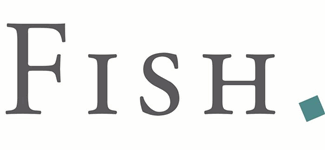Best Lawyers in Kansas, United States for Copyright Law
Practice Area Overview
Copyright applies to original works of authorship that are fixed in a tangible medium of expression. An original work of authorship is one that is independently created and includes a minimum level of creativity. Examples of the types of works to which copyrights apply include literary works, drawings, paintings, sculptures, movies, music, video games, and other works of art. Copyright protection also applies to computer software.
Copyright protection does not protect ideas, but protects the expression of an idea. A work does not need to be registered with the Copyright Office to be afforded copyright protection. However, it must be registered with the Copyright Office to bring a lawsuit for copyright infringement. In addition, significant benefits arise from the timely registration of copyrights.
The author of a work is vested with a number of exclusive rights when copyright protection arises. These exclusive rights include, among other things, the right to reproduce (copy), adapt, display, and publicly perform the work. The author may transfer all or some of his or her exclusive rights in the work to another party. For example, the author of a novel may transfer the right to adapt a novel into a screenplay to a movie studio, while still retaining the copyright in the novel itself. Another significant component of copyright law is the area of fair use, which allows use of a copyrighted work without permission in certain limited circumstances (e.g., for the purpose of commenting on or criticizing the work).
Copyright lawyers assist clients with identifying materials that are protectable by copyright, registering copyrightable works with the United States Copyright Office, and counseling clients in the various ways in which copyrights may be acquired, protected, and exploited. Litigation also is a large part of a copyright lawyer’s practice.
Copyright law also addresses issues involving digital rights management, which are measures designed to manage digital copies of works. With the advent of digital copies, some copyright owners seek to restrict the ability to make copies of a particular work. The Digital Millennium Copyright Act, which is part of U.S. copyright law, prohibits circumventing measures that are designed to prevent copying of copyrighted works. The Digital Millennium Copyright Act also, among other things, provides a framework for online service providers for avoiding copyright infringement based on the acts of the online service provider’s users.
Joel D. Leviton, Co-Chair of Copyright Practice
Kristen McCallion, Co-Chair of Copyright Practice
Fish & Richardson
Select a city from the list below to find the best legal talent for your needs.
Cities
Lawyers who have a subscription to profiles appear first.
Would you like to claim your lawyer profile?
Contact UsOur Methodology
Recognition by Best Lawyers is based entirely on peer review. Our methodology is designed to capture, as accurately as possible, the consensus opinion of leading lawyers about the professional abilities of their colleagues within the same geographical area and legal practice area.
The Process
Best Lawyers employs a sophisticated, conscientious, rational, and transparent survey process designed to elicit meaningful and substantive evaluations of the quality of legal services. Our belief has always been that the quality of a peer review survey is directly related to the quality of the voters.

